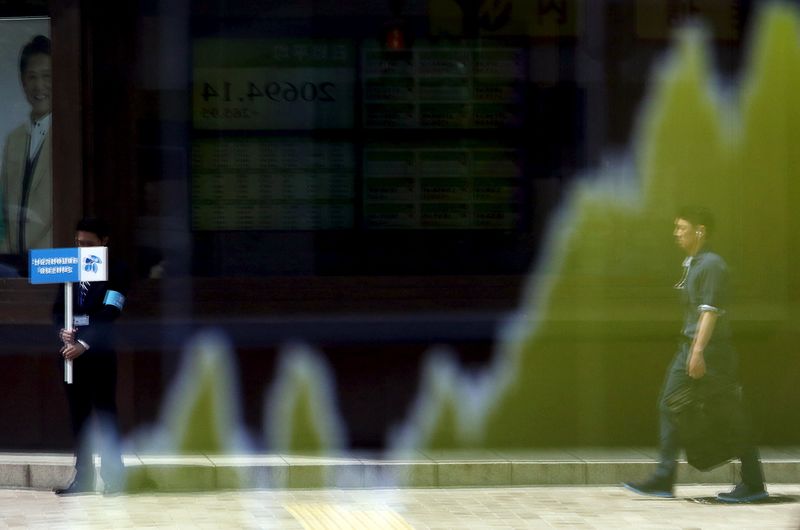This post was originally published on this site
https://i-invdn-com.investing.com/news/LYNXMPEB5N00I_M.jpg
Japan’s Nikkei 225 index outpaced its peers for a fifth straight session, rising 1% to its highest level since the 1990’s “bubble era.” The broader TOPIX added 0.5%, and was at record highs.
The rally was powered by a mix of strong corporate earnings, resilience in the Japanese economy and bets that the Bank of Japan will maintain its ultra-loose monetary policy.
This saw traders largely look past data on Friday that showed Japanese consumer inflation rose in April, moving back towards 40-year highs and potentially heralding more pressure on the Japanese economy.
Broader Asian markets advanced on Friday, tracking gains in Wall Street amid growing optimism that policymakers were close to reaching a deal to raise the U.S. debt ceiling and avoid a default.
South Korea’s KOSPI added 0.8%, while the Taiwan Weighted index rose 0.4%. Australia’s ASX 200 index also added 0.7%, amid growing bets that the Reserve Bank will hold interest rates steady in June.
But broader gains were held back by concerns over a slowing post-COVID economic recovery in China, following a string of weaker-than-expected readings this week. Sluggish readings for April suggest a difficult second quarter for the Chinese economy, despite a strong start to the year.
China’s Shanghai Shenzhen CSI 300 and Shanghai Composite indexes were flat after lagging their peers all week, while Hong Kong’s Hang Seng slid 1%.
The Hang Seng was also pressured by losses in e-commerce giant Alibaba (NYSE:BABA) Group, which tumbled 5.3% after its first quarter revenue missed estimates. The group is facing slowing demand in China as the country’s digital markets mature and as it faces increased competition from other players.
Chinese consumer spending remained below consensus despite rebounding sharply from COVID-era lows, as consumers stayed wary of bigger purchases amid weak economic conditions.
Hawkish signals from U.S. Federal Reserve officials also rattled markets, as more policymakers warned that sticky inflation could keep rates higher for longer, and potentially attract more hikes.
Their warnings came ahead of a panel discussion with Chair Jerome Powell due later in the day, which is set to provide more cues on monetary policy.

